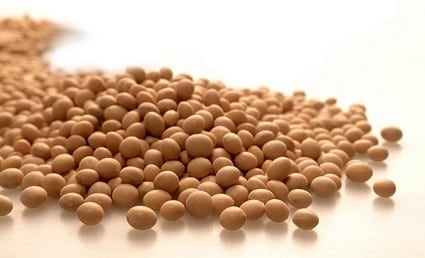Government of Zimbabwe reduces soya bean imports

Harare, Zimbabwe
Aug 17
GOVERNMENT has put in place measures to control soya bean imports to create a market for local producers of the raw material widely used in the production of edible oils.
The move, which took effect last week, comes after local cooking oil manufacturers started shunning produce from local farmers opting to buy cheaper imported soya bean.
Agriculture, Mechanisation and Irrigation Development Minister Dr Joseph Made said Government would not watch while cooking oil manufacturers struggled to get foreign currency to buy soya beans from outside when the local farmers were producing the raw material.
“We have moved to limit the importation of soya beans into the country to cater for our local farmers who have the same product, if not better quality than imported soya. We have engaged the Industry and Commerce Ministry to reduce soya beans import permits to ensure cooking oil manufacturers buy for the local farmers,” Dr Made said.
He said those few who could get import licences would need strong a case since there was need to exhaust the local raw material first before importing was considered an option.
“We do not have the foreign exchange to import some goods, which we have internally. We need to reserve it for the importation of critical raw materials such as those used in fertiliser manufacturing. The cooking oil manufacturers can always come to the Grain Marketing Board to purchase soya beans if accessing it from the farmers proves difficult,” he said.
Government is buying soya beans for $500 per tonne whereas the imported product is selling for $370/t. Dr Made acknowledged that Zimbabwe had not produced enough soya beans this year, but said Government wanted the available crop to be exhausted before opting for imports.
Dr Made said soya would be included under the Command Agriculture programme targeting areas where the crop is commonly grown. Soya beans are predominantly grown in Hurungwe, Shamva and Chinhoyi. He said if the leguminous crop was farmed properly, Zimbabwe would end up exporting edible oils.














